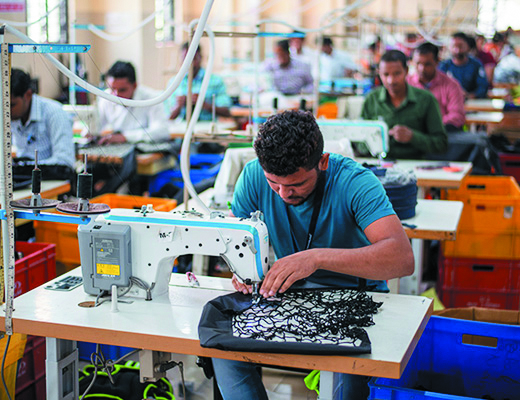The central government has made amendment in the Rebate of State and Central Taxes and Levies (RoSCTL) scheme which gives Indian garment exporters relief from favourable appreciation in transferable duty credit scrips.
Apparel Export Promotion Council (AEPC) has welcomed the move and expressed its gratitude to the government for the considering the pending request for deletion of provision of making the transferee liable from the RoSCTL conditions.
Indian garment exporters have got immediate relief from favourable appreciation in transferable duty credit scrips as the government has made amendment in the Rebate of State and Central Taxes and Levies (RoSCTL) scheme.
Garment exporters’ bodies have welcomed the government’s decision stating that it was a much-needed step for the industry.
Under the RoSCTL Scheme, maximum rate of rebate for apparel is 6.05 per cent, while for the made-ups it is 8.2 per cent.
However, with the deep discount, exporters were getting in between 4.8 per cent to 6.4 per cent, losing 1.2 per cent to 1.6 per cent in the shape of discount.
AEPC expressed its gratitude to the government for the considering the pending request for deletion of provision of making the transferee liable from the RoSCTL conditions.

Speaking on this development Chairman AEPC Shri Naren Goenka said, “The Government of India’s Rebate of State and Central Taxes and Levies (RoSCTL) Scheme has benefitted the Apparel and Made-up Sector. AEPC had been requesting that the transferee clause as given in the Notification No. 77/2021 dated 24.09.2021 of DoR, making transferee liable in the case of non-realization of the exporter proceeds should be deleted. I am thankful to the government for considering to our request positively.”
“The amendment will provide much needed relief to the garment sector and ensuring maximum refund of RoSCTL amount will help exporters meet their working capital requirements. Further, it will give impetus to the garment sector to perform better at a much faster pace,” Chairman added.
For ensuring continuity, Government had already provided the benefit of the Scheme till March, 2024. However, since the operationalization of the RoSCTL Scheme, the exporters have been facing various issues in the implementation of the Scheme.
Even though the RoSCTL aimed to reimburse the taxes paid by the exporters to the Central or State Governments, under RoSCTL the rebate was not directly transferred to the exporters in cash, but this was granted to exporters of Garments and Made-ups in the form of freely transferable duty credit scrips.
Exporters can either use these scrips to pay Basic Custom Duty (BCD), on their own imports or they can sell the duty credit scrips to other importers. RoSCTL scrip has limited usage as it could be used only for payment of BCD.
In September 2021, an additional condition was notified for the RoSCTL Scheme that allowed the Customs Authorities to recover from the subsequent buyers of the scrip (transferees) amounts due for the non-realization of the sales proceeds by the exporters to whom the scrip was originally issued.
This was resulting into the exporters selling these scrips in open market at discounts, extending up to 20%.
Under the RoSCTL Scheme, maximum rate of rebate for Apparel is 6.05% while for the made-ups it is 8.2%.
However, with the exporters who were selling these scrips in open market at discounts up to 20%, the primary implication is that the actual rebate allowed to the exporters varies between 4.8% to 6.4%. This also means that the taxes up to 1.2% to 1.6% of export value was not actually rebated and it remained embedded.

